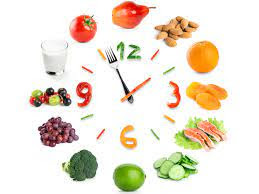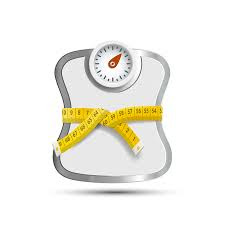If you want to gain weight, there are some things you need to know. This article will tell you everything that you need to know about gaining weight, including how much food and calories it takes for gaining weight.
Don't skip meals
Eat regularly. Your body needs food to function properly and you'll be more likely to gain weight if you don't eat enough. If you're on a diet, make sure that all of your meals include protein, fat, and carbs (carbs give us energy).
Make sure that you're eating enough food throughout the day. You should have at least three meals per day—breakfast, lunch and dinner—and snacks between these meals if necessary.
This will help keep blood sugar levels steady so that energy can be available for the whole day instead of just when we feel hungry (which is often). Choose foods wisely when it comes time for breakfast or lunchtime: don't choose anything that's high in sugar because this will increase insulin production which leads directly to overeating later on!
Instead, choose foods such as vegetables like green leafy vegetables like spinach which contain iron which helps build up haemoglobin in your red blood cells without adding extra calories onto your plate!
Eat more often
You should be eating every 2-3 hours. This will help you to feel full, and it will keep your metabolism high.
Also, it's important to eat more calories than you burn each day because the body needs fuel for its various functions. If you don't eat enough food or if your diet is low in calories, then it's possible that your body won't have enough energy available to do all of its work properly!
It's also important not only how often but also what kind of food we eat during meals—for example protein sources like meat/fish/eggs; dairy products such as milk or cheese; fruits & vegetables (including leafy greens); whole grains & beans; healthy fats like olive oil/avocados etc.
Choose nutrient-rich foods
A good way to gain weight is to eat nutrient-rich foods. There are many different types of nutrients that your body needs, but the most important ones are protein and fat.
Protein is an essential part of any diet because it helps keep you feeling full longer and aids in muscle building, while fat provides energy for your muscles to use when they need it most (like during exercise).
Fibre also plays an important role in keeping your digestive system healthy—and thus helping you feel fuller longer than if you didn't have enough fibre in your diet.
Vitamins and minerals help regulate how well your body uses oxygen so that no matter how much oxygen enters into cells via blood flow or sweat glands, there will always be enough left over for other processes.
Try smoothies and shakes
Smoothies and shakes are an easy way to get your protein and carbs, but they can also help you gain weight. To make a smoothie or shake:
Add fruit, vegetables and healthy fats (like avocado).
Add a healthy carb (such as oatmeal).
Top with protein powder!
Make every bite count
Eat slowly and chew your food well.
Drink plenty of water to stay hydrated, and don't forget to add lemon or lime juice to help with the digestion of fatty foods like meat or cheese.
Eat healthy fats and proteins—such as fish, nuts, seeds and avocados—to get the right balance of calories in your diet.
Avoid processed foods that contain high amounts of sugar (like candy), sodium and trans fats; instead, focus on whole grains such as brown rice or whole wheat pasta with vegetables on the side for additional fibre content.
A balanced diet is essential if you want to gain weight quickly because it ensures that you're getting all the nutrients needed by body cells during growth spurts like adolescence when we're most likely putting on fat stores around our midsection just so we can grow taller than everyone else in our class!
If possible try eating foods high in fibre such as fruits like oranges or apples which will help keep the digestive system running smoothly while adding some extra nutrition into each meal too."
Top it off
The key to gaining weight is to use toppings. Top your food with cheese, butter or cream cheese; this will increase the volume of what you're eating and make it more satisfying.
Top off your meals with an extra serving of vegetables or fruits like tomatoes or pineapple chunks! You can also add nuts on top of other foods for a crunchy texture that will help keep you full longer after each meal.
When topping off at meals, try to avoid using excessive amounts of fat on foods such as French fries because these types of foods often have high amounts of saturated fat (which is bad for health).
Snack away
If you're looking for a quick way to gain weight, snack on high-calorie foods. This can be anything from protein bars and nuts, to cookies and crackers.
The key here is not just the caloric content of your snack but also what kind of food it is—you want something that will keep your metabolism up so that you don't feel hungry throughout the day (which could make eating breakfast or lunch more difficult).
Don't forget about snacking between meals too! When we eat meals in smaller portions throughout the day instead of several big ones at once, our bodies won't have as much room in their stomachs for all those extra calories later on once they've been digested and absorbed into our system (and this can lead us into another weight gain cycle).
In order to gain weight, you must burn fewer calories or consume more of them in your diet or a combination of both
You can gain weight by eating more calories than you burn, or by burning fewer calories than you eat.
The key is to balance your intake and expenditure in order to gain the amount of weight that works for you. In order to gain weight, you must burn fewer calories or consume more of them in your diet or a combination of both.
Weight gain is a slow process; it generally
takes several months before significant amounts are added to your frame.
Conclusion
If you’re looking to gain weight, the first step is finding
out what your body needs. You can do that by figuring out how many calories you
burn per day through exercise or by monitoring your food intake. You should
then be able to make adjustments to either one of these factors to
gain weight faster.
Special Note
This guide is a one-size-fits-all solution for people who want to gain weight in the healthiest way possible.











Wow ! This is amazing .. keep growing ❤️
ReplyDelete